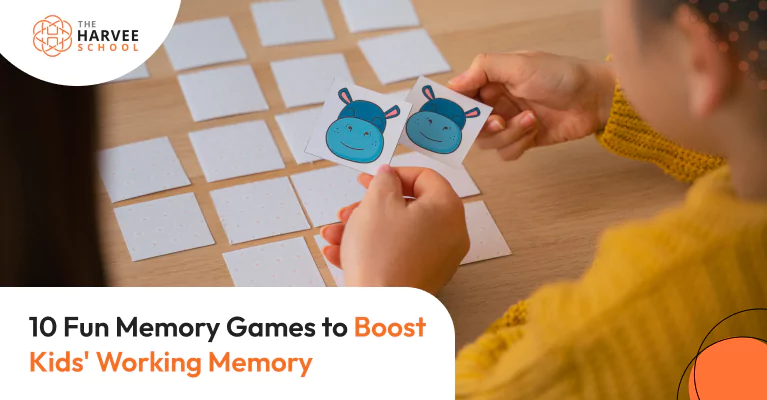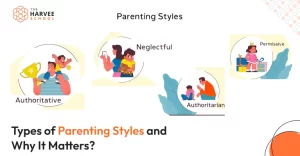10 Fun Memory Games to Boost Kids’ Working Memory
Working memory helps kids remember and use information in real-time—whether it’s recalling instructions, solving problems, or following through with tasks. While some kids naturally have strong working memory, others can improve this skill with a little practice. The good news is that improving memory doesn’t have to be boring!
In this blog post, we’ll look at some fun and simple memory games that can help kids build their working memory.
1. Simon Says
This classic game is a great way to boost working memory. One person (the “Simon”) gives commands like “Simon says touch your nose” or “Simon says jump.” The twist is that kids can only follow the command if it starts with “Simon says.” If the command is without saying “Simon says,” the one who follows it is considered to be out.
Why it helps: It encourages kids to pay attention and remember instructions while learning to block out distractions.
2. Memory Card Game
In this game, you use a deck of cards with pairs of matching images. Lay the cards face down. Players take turns flipping two cards at a time, aiming to find a matching pair. If they uncover a match, they keep the cards and take another turn. If it doesn’t match, they flip them back.

How it helps: This game works on visual memory. Kids need to remember where the matching cards are, which helps improve recall.
3. Story Building
Start a story by saying, “Once upon a time, there was a dragon who loved to fly.” The next person repeats the sentence and adds another detail, such as, “Once upon a time, there was a dragon who loved to fly and lived in a castle.” Each player continues adding to the story.
Why it helps: It strengthens verbal memory as kids have to remember and repeat what was said while adding their details.
4. What’s Missing?
Put several items (like toys or household objects) in front of the children. Give them a few seconds to study them. Then, cover them with a cloth and secretly remove one item. Ask the kids to figure out what’s missing.
Why it helps: This game allows kids to improve visual memory and attention to detail as they work to remember the objects.
5. Memory Tray
Place a group of objects (like small toys, buttons, or coins) on a tray. Let kids look at the tray for 30 seconds, then cover it up. Ask them to recall and list as many objects as they can remember.
Why it helps: It boosts both visual memory and focus. The more kids practice, the better they get at remembering things.
6. I Spy
This game is simple and fun. One should start by saying, “I spy with my little eye something that is [color/shape/texture],” and the others should take turns guessing what the object could be. For example, “I spy with my little eye something that is blue.” It’s a great game for improving attention to detail.
Why it helps: “I Spy” works on visual memory and helps kids focus on the details in their environment.
7. The Listening Game
One player makes a sound (e.g., clapping, a dog barking, a clock ticking) while the others listen closely. Players take turns guessing what the sound is. For example, “What sound is that?” The player who correctly finds it gets a point or can have the opportunity to create a new sound for the others to guess.
Why it helps: This game improves auditory discrimination, memory, and listening skills. It also helps children develop focus and attention by practicing recognizing and recalling sounds.
8. Number Sequence Memory
Say a sequence of numbers, like “3, 7, 1.” The kids must repeat the numbers in the correct order. As they get better, you can make the sequences longer and more challenging. This strengthens their numerical memory and helps kids focus on patterns and sequences.
9. Word Association Game
In this game, one person says a word like “apple.” The next person must say a word related to it, like “fruit,” and the next person might say “banana.” The game continues as each player says a word that relates to the one before it.
Why it helps: This game encourages verbal memory and helps kids build connections between ideas and words.
10. Brainy Baskets
Choose a category, like animals or colors, and challenge the kids to list as many items as possible in that category within one minute. For example, if the category is “animals,” they might say “dog, cat, elephant.”
Why it helps: This game encourages quick thinking and helps kids organize information in their memory.
Why do Memory Games Matter for Kids?
Memory games are more than just fun—they’re essential for building important cognitive skills.
Improved Attention and Focus: Many memory games require kids to pay close attention to details, which helps them focus better on tasks like reading, listening, and problem-solving.
Better Learning: Strong working memory is a key to success in school. Kids who practice memory games are better able to retain and use new information in the classroom.
Enhanced Problem-Solving: Many memory games challenge kids to think critically and find solutions, which boosts their problem-solving skills.
Social and Emotional Development: These games often involve taking turns and playing with others, which helps kids improve their social skills, learn patience, and build teamwork.
Conclusion
Working memory is an essential skill that helps kids succeed in school and everyday life. By adding these 10 memory games into your playtime, you can help children improve their memory while also having fun together. Whether at home or in the classroom, these games will keep kids engaged and learning while strengthening their attention, focus, and cognitive abilities.
So, gather some materials, start playing, and watch your child’s memory grow!






